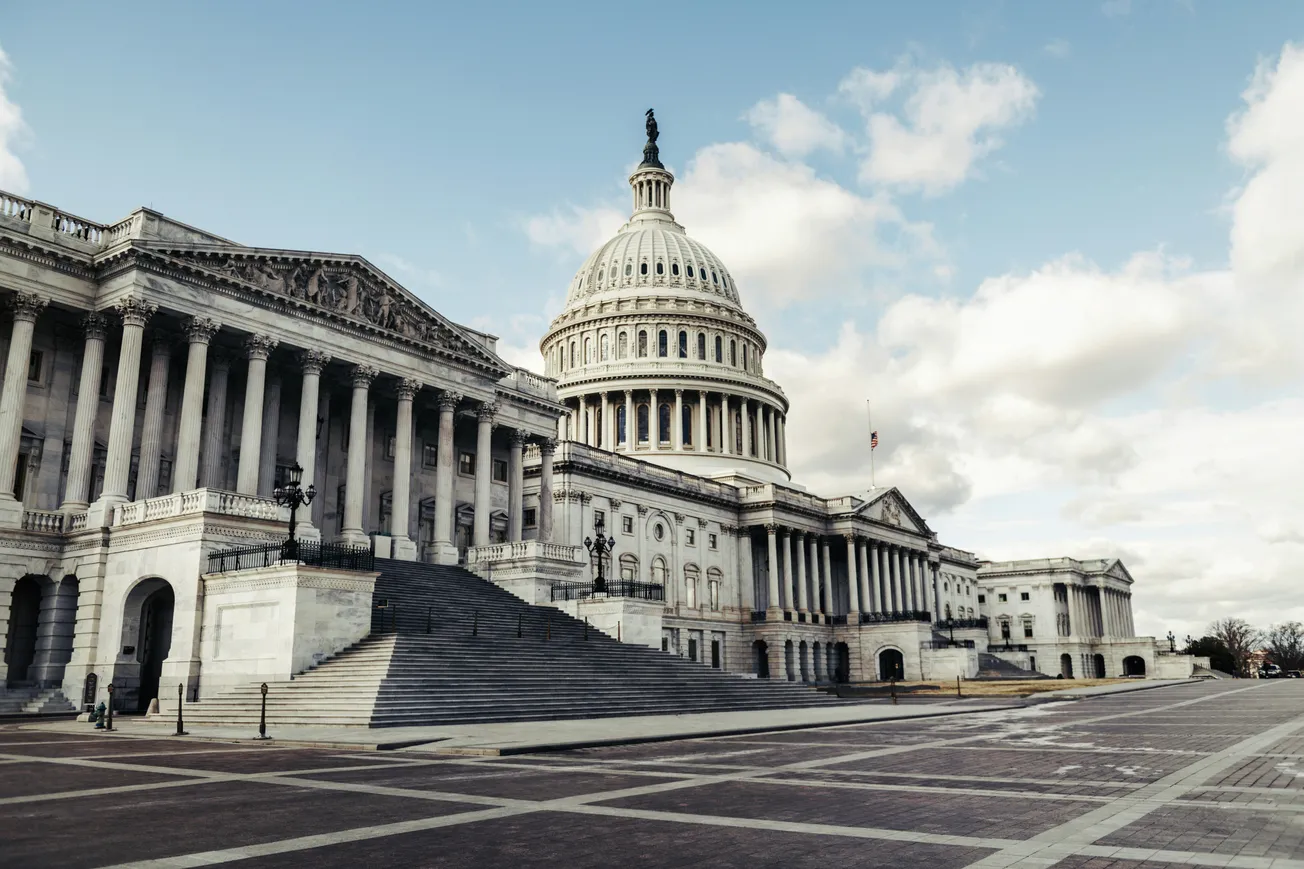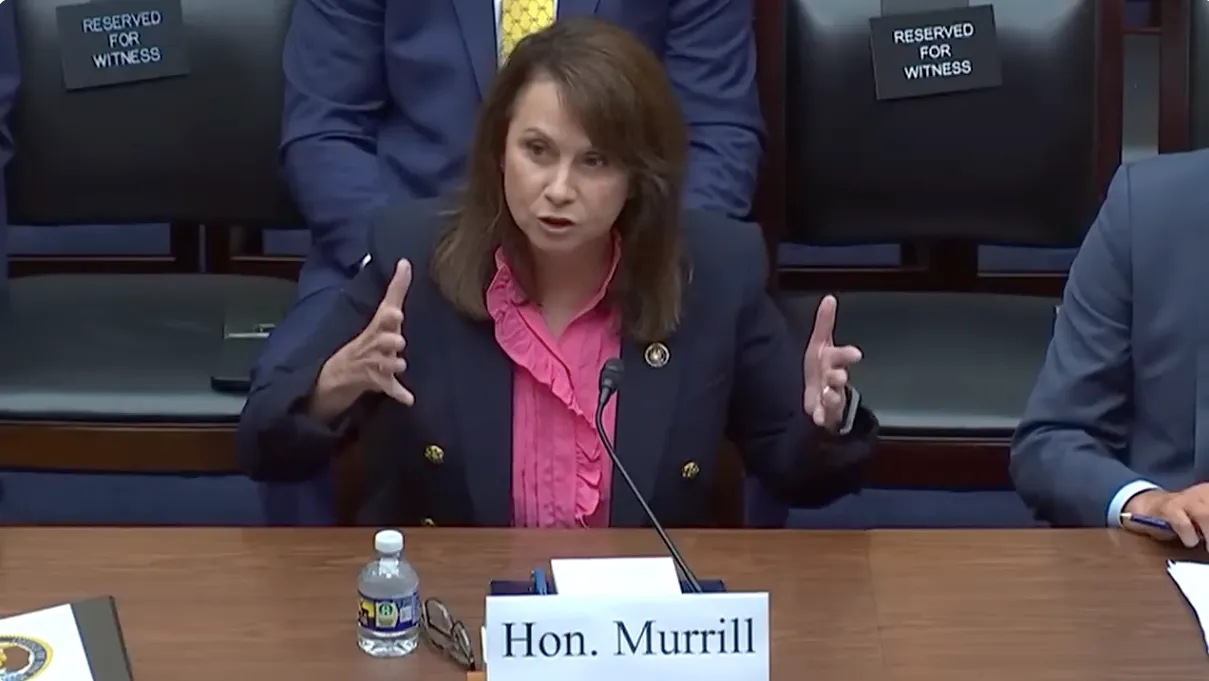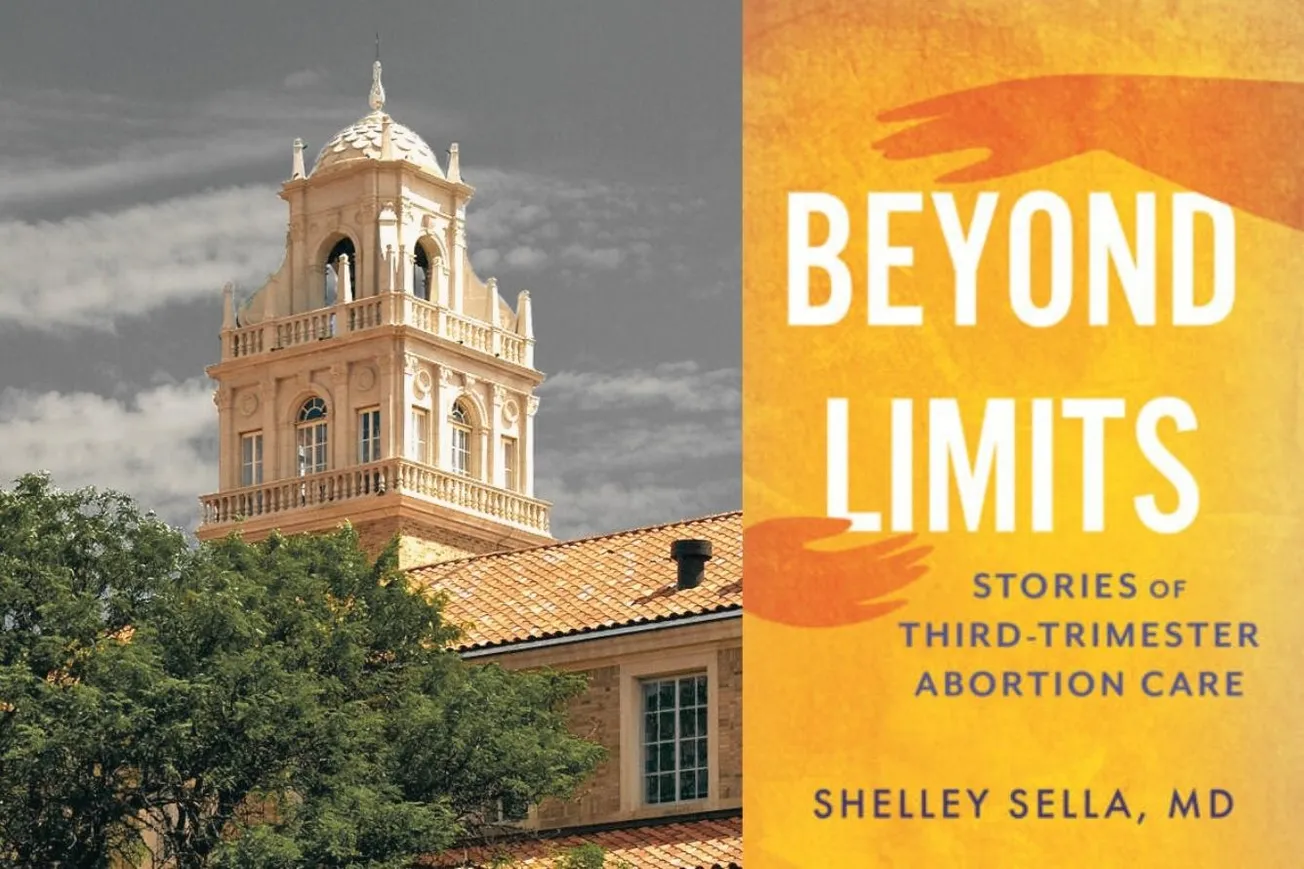Table of Contents
Welcome to the latest edition of our weekly roundup. Every Monday, we’ll send you a summary of the biggest stories about bodily autonomy. We’ll also include links to pieces that Garnet or Susan have published.
If you’d prefer to receive a single email every week, you can do that—we love autonomy. You can manage your subscriptions by navigating to the site, clicking on “Account” in the upper right, then under “Emails,” select “Manage.” You can toggle off “Autonomy News” to receive only the roundup, or vice versa.
Let’s dive in.
On Autonomy News
Garnet wrote about QueerDoc, the small, telehealth gender-affirming care clinic that received a subpoena for its patient records from the Department of Justice. QueerDoc fought back, and won—at least for now. (Share this story on Instagram or Bluesky.)

Two more updates: First, we are thrilled to share that we’ve exceeded our initial end-of-year goal of $50,000! We are blown away by the support you’ve shown, and frankly, we’re breathing much easier knowing that we can afford health insurance next year. We’re now aiming for a stretch goal of $75,000. Your contributions will help us pay ourselves a living wage while we run down all the tips we receive, and pursue some big investigations.
Second, we updated our bestselling Bad Stork design to pop on dark colors.
We just updated our best-selling Bad Stork design to pop on darker colors like black, navy, maroon, and forest green. Check out new shirts and black totes: www.bonfire.com/bad-stork-sh... www.bonfire.com/bad-stork-to...
— Autonomy News (@autonomynews.co) 2025-11-22T17:24:10.313Z
You can also help keep our journalism paywall-free in 2026 by upgrading to a paid subscription or dropping a little something in our Tip Jar.
Federal news
Federal District Judge Indira Talwani heard arguments this afternoon in the ongoing legal battle over the federal budget law provision “defunding” Planned Parenthood and other large abortion providers—this time, in a challenge filed by states. Shortly after President Trump signed the bill into law this summer, Planned Parenthood sued, and Talwani issued injunctions preventing enforcement of the provision. However, those injunctions were blocked by the First Circuit Court of Appeals in September, allowing the “defund” to go into effect. But a coalition of 22 states and Washington, D.C. also sued to block the “defund” provision in July. The argument in this case is different: namely, that the budget law harms states by putting them in the position of having to choose either to kick Planned Parenthood affiliates out of Medicaid—harming their health care ecosystems in the process—or using state money to keep Planned Parenthood afloat. It remains to be seen whether this argument might fare any better in front of the First Circuit, where it will undoubtedly end up.
Meanwhile, the law’s one-year “defund” period isn’t enough for anti-abortion groups and lawmakers. They’re pushing for a more permanent way to “defund” Planned Parenthood using an obscure regulatory designation called debarment, in which an organization is banned from receiving federal funds of any kind. This would formalize two things the Trump administration has more or less already done: kick Planned Parenthood out of Medicaid, and disqualify it from receiving Title X family planning funds. But it would also prevent Planned Parenthood from receiving federal assistance in any other form, like loans, grants, and tax credits, and block it from participating in a federal drug pricing program. For example, if there was another pandemic, or a natural disaster, Planned Parenthood couldn’t apply for any business grants or loans from the federal government. Debarment is normally reserved for organizations accused of fraud or other wrongdoing, and typically lasts for three years.
Last month, 51 Senators signed on to a letter demanding that the Food and Drug Administration reverse changes that allowed the abortion pill mifepristone to be sent to patients by mail. Now, 175 members of the House of Representatives have signed on to a similar letter publicized by Susan B. Anthony Pro-Life America. About one in four abortions nationwide are done with pills via telemedicine, and any FDA changes to that policy would have huge impacts. So much for “leaving abortion to the states!” The letter claims that abortion pills are “sent across state lines with no physician oversight,” and while it’s true that it is possible to order abortion pills online without speaking to a physician, this has nothing to do with FDA regulations—only the nature of the internet, which makes it possible to order pharmaceuticals from overseas. All U.S. physicians who prescribe mifepristone still follow stringent rules. In fact, experts believe that the FDA still unnecessarily restricts mifepristone, and earlier this month, a federal judge agreed.
The Attorney General of Missouri is asking a federal judge to roll back the Food and Drug Administration’s approval of a second generic version of mifepristone, which the agency approved in September. AG Catherine Hanaway made this demand to broaden an ongoing lawsuit against the FDA over access to medication abortion filed by the AGs of Missouri, Kansas, and Idaho. They originally filed their case in Texas, but judge Matthew Kacsmaryk recently transferred the proceedings to the Eastern District of Missouri, where the plaintiffs drew another Trump-appointed judge, Cristian Stevens. Stevens has yet to rule on the request.
State news
In a confusing ruling, the North Dakota Supreme Court allowed the state’s six-week abortion ban to go back into effect. A majority of justices agreed that the ban violates the state’s constitution, but the ruling was 3-2, and in North Dakota, a supermajority vote is required to override a state law. North Dakota is one of three states with such a rule—the other two are Ohio and Nebraska. This decision will only affect hospital-based abortion care because there are no abortion clinics in North Dakota: The state’s last abortion provider, Red River Women’s Clinic, relocated just over the border to Minnesota shortly after the Dobbs decision.
South Carolina lawmakers failed to advance an extreme abortion ban that would have allowed prosecutions of people who have abortions—but the bill could be reintroduced during the regular session. Senate Bill 323 would have criminalized abortion except to save the pregnant person’s life, made it a crime to aid or abet an abortion, and defined life as beginning at fertilization, which could be used to target some forms of birth control like IUDs and emergency contraception. In a Tuesday subcommittee hearing, sponsor Sen. Richard Cash refused to remove provisions subjecting pregnant people to prison time and, as a result, four Republicans abstained from voting. The Medical Affairs subcommittee then voted 3-2 not to advance the bill, but could be revived when lawmakers return in January.
ProPublica reports that a 37-year-old Texas woman named Tierra Walker died of preeclampsia after being told repeatedly that she didn’t need to worry about her pregnancy, which outside experts consulted by the outlet say was undoubtedly high risk due to her persistently high blood pressure and diabetes. Over 90 physicians were consulted in Walker’s care, and not one offered her the option to end her pregnancy. Walker’s death is more proof that exceptions to abortion bans don’t work in practice. The Texas abortion ban has exceptions for life endangerment or situations where a pregnant person is at risk of “substantial impairment of a major bodily function,” yet most major hospitals in the state still don’t offer abortions to pregnant patients until they’re facing imminent death due to fears over criminal and legal liability.
The Wisconsin Senate passed a bill that redefines abortion in state law to exclude the removal of a dead embryo or fetus, or removal of an ectopic or molar pregnancy. Sen. Romaine Quinn said he co-authored Senate Bill 553 to clear up ambiguity in cases where people need lifesaving care, but the bill would also require physicians to make “reasonable medical efforts under the circumstances to preserve both the life of the woman and the life of her unborn child.” Opponents claim the bill’s language could lead to unnecessary C-sections or labor induction rather than patients receiving abortion care. The bill now heads to the Assembly. Gov. Tony Evers has pledged to veto it, but the legislature could attempt an override.
Also in Wisconsin, Republicans are seeking co-sponsors for a proposed bill that would require doctors prescribing abortion pills to send patients home with an unnecessary “catch kit,” a medical waste bag, and instructions for returning their products of conception to the abortion provider. The three lawmakers trying to advance the bill falsely suggest that medication abortion causes water pollution. Such legislation is the brainchild of anti-abortion organization Students for Life.
The Ohio House passed a bill that would end telehealth prescriptions for multiple drugs, including abortion pills. House Bill 324 doesn’t name mifepristone outright but rather says that any medication with “severe adverse effects” in more than 5% of users must be dispensed in person. Opponents of the bill note that the state could use biased data to make that determination and it could also rope in other common drugs like antibiotics and blood thinners. Lawmakers are acting in defiance of their own voters, who approved a 2023 constitutional amendment codifying a right to abortion in the state.
The Oregon legislature has agreed to allocate $7.5 million in emergency funds for Planned Parenthood affiliates in the state following the federal law blocking large abortion providers from being reimbursed for Medicaid services. The state’s 12 Planned Parenthood clinics received nearly $17 million in annual Medicaid reimbursements in 2024 and the Oregon Health Authority recommended $10 million in funding to prevent clinic closures, but the legislature didn’t grant the full amount. Several other states have stepped in to backfill the lost reimbursements.
Personhood watch
A Florida bill we’ve mentioned previously, which would allow people to file wrongful death lawsuits over fetuses, is making its way through the state legislature. Last week, one of two House subcommittees that needed to approve HB 289 did so, despite objections not only from reproductive rights groups, but from hospital associations and medical liability insurance carriers. A Senate version of the bill has also received one of two necessary committee approvals.
Assaults on queer people
The Department of Health and Human Services has re-released its transphobic gender-affirming care report, which concluded that the evidence base for gender-affirming care in young people is insufficient and recommended deprioritizing interventions like puberty blockers, hormones, and surgery (which is rarely offered to adolescents anyway). The initial report was widely criticized for many reasons, including the fact that its authors were anonymous. The re-released report includes author names, and surprise, surprise, many of them are longtime critics of gender-affirming care. The re-released report also includes a new peer review section, but the peer reviewers were similarly biased. “This ‘report’ was reviewed by people who are well known for touting harmful, transphobic rhetoric within and outside of their own communities,” said Physicians for Reproductive Health president Dr. Jamila Perritt in a statement. “None of them provide gender-affirming care and many of them have made public testimonies in support of transphobic legislation. Unsurprisingly, the Administration stacked its review board with people who would agree with these dangerous claims.”
One of the effects of Trump’s anti-trans executive order that directed federal agencies to recognize only people’s sex assigned at birth is that it barred federal employees from using bathrooms corresponding with their gender identities. A transgender civilian employee of the Illinois National Guard named Leanne Withrow is suing over the order, saying that, since its implementation, she’s been forced to starve and dehydrate herself during work to avoid using the bathroom.
Quick hits
- A new report from Campaign for Accountability finds that AI chatbots are directing people to unproven abortion pill “reversal.” Yikes.
- A recent study found that gun homicide rates among pregnant people increase with the rate of gun ownership. Previous research has found that homicide is a leading cause of death in pregnancy.
- Another study published in Nature finds that white Americans’ “mental representations of those who have abortions are suffused with racial and gender bias, particularly when imagining those who have abortions for non-medical reasons, and these visualizations impact abortion policy attitudes.”
- The bill “defunding” abortion providers like Planned Parenthood has also led to a reduction in access to primary care in Maine as Maine Family Planning was forced to make difficult choices.
- The Free Birth Society made millions encouraging people to give birth alone, without the assistance of midwives or doctors. Now, it’s linked to stillbirths and infant deaths around the world.
- Florida Attorney General James Uthmeier falsely claimed in a recent social media post that 1 in 25 medication abortion patients are hospitalized, when the actual number is more like 1 in 200 people.
- “On the worst day of our lives, Idaho politicians made it harder”: One woman shares the story of how a denied abortion resulted in her being airlifted out of the state.
Actual good news
A federal judge in Pennsylvania quashed (or canceled) a Department of Justice subpoena for patient records and other information related to gender-affirming care provided by Children’s Hospital of Philadelphia. This subpoena was nearly identical to the one received by QueerDoc, which Garnet reported on last week. That makes three confirmed recipients so far: Boston Children’s Hospital, Children’s Hospital of Philadelphia, and QueerDoc. All three of these subpoenas have been blocked by federal judges.
Palate cleanser(s)
Scabby the Rat always stands on business.
@baddiebelladonna Idk who went on strike but I stand beside em lol #union #unionworker ♬ original sound - Malika| Twin mommy
This is cinema.
@cody.taurus his first red flag was dating a shiba 😬 🚩 @Tokyo the bear ♬ original sound - Cody Taurus
Follow Autonomy News on Instagram, Bluesky, TikTok, and LinkedIn.









